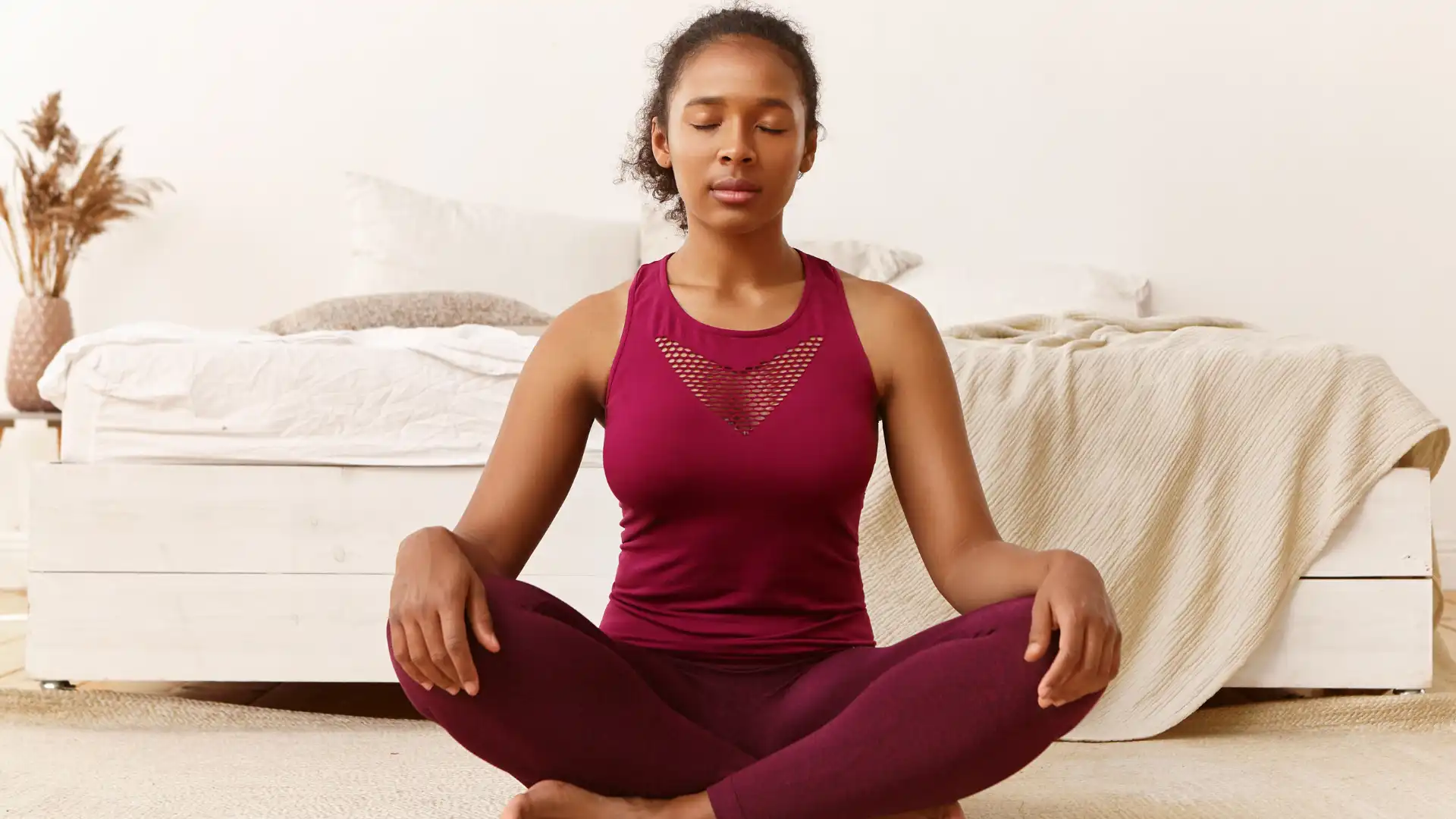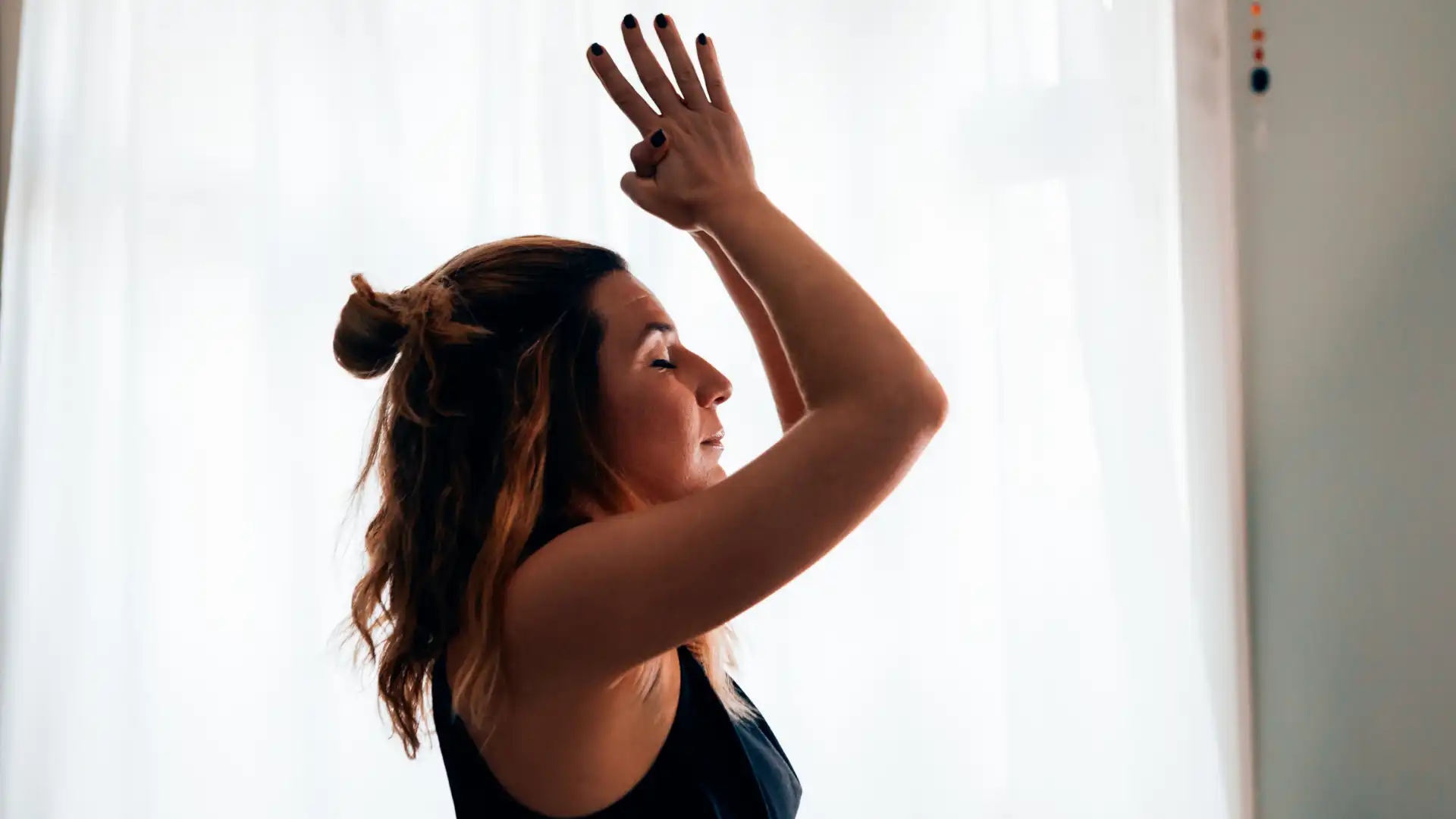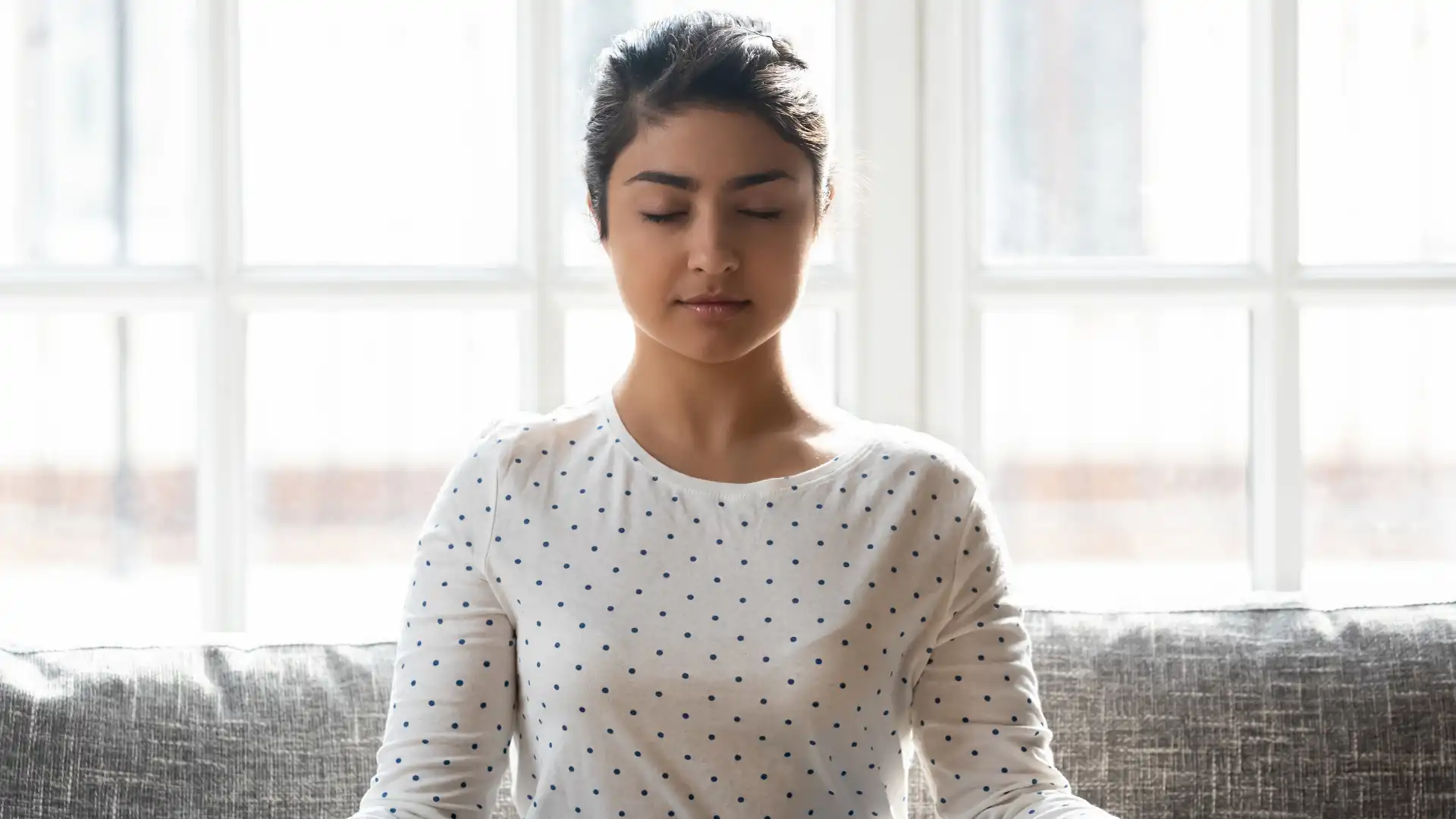Yoga, Body Image and the Slow Satisfaction of Compassionate Defiance

About 15 years ago, a thin, athletic woman I’ll call Kelly came to a few of my Tuesday morning classes. She’d show up in her workout clothes, sweaty, with a cup of coffee in her hand, which she’d sip standing up until I started the class.
A few weeks in she stayed after to talk to me. “I’d like you to ramp up the class a little,” she told me. “I need to do more upper bodywork, and I’m not getting quite enough in your class,” I asked her why she felt like she needed a stronger practice. “Look, I run six or seven miles every morning, so I get plenty of leg work, but my upper body is not getting enough, which is why I come to yoga after my run,” she told me.
I kept digging. “Why do you need to work out so much?”
“Because of my weight,” she said bluntly, with a bit of a “duh, isn’t that obvious!?” look. “I have to work really hard to stay thin, and I agonize over every bite of food I put in my mouth.”
My heart went out to her. I remembered that feeling, and I also knew how, over time, yoga had helped me to defeat it. But unfortunately for Kelly, I had very little explanation to offer her other than that my classes could perhaps help her relax a bit. But Kelly was not interested in relaxing. It was the intensity of her workouts (and life) that kept the weight off — relaxing meant letting her guard down against the relentless enemy of fat.
I didn’t understand how to explain the neurophysiologic benefits behind what I taught and how they differ from (and complement) those of intense physical exercise. So, after a few more weeks, I never saw Kelly again. I’d lost her to her anxious pursuit of an elusive ideal. Kelly is only one chapter in a long book I could write about yoga, women, and body image/eating disorders. There are so many other heartbreaking stories.

How Yoga Can Slowly Change Our Perception of Body Image
As I started to study neuroscience and read the research, I began to understand how yoga helps to assuage anxiety and build a more resilient nervous system and a stronger sense of self, self-referral, and agency. I understood very personally how yoga practice could help free a mind colonized by misogyny and patriarchy. I began to have better explanations for my students that moved far beyond “it’s relaxing.” Slow, mindful practice is a way to compassionately and empathically defy anachronistic ideals about women’s bodies that are so profoundly and tragically ingrained in our culture.
Fat is a feminist issue, and until we completely erase the drive for the perfect runway model ideal, it will continue to cause suffering and continue to necessitate rigorous feminist critique. Women are not works of art, and our bodies don’t need sculpting.

Moving slowly, without worrying about whether or not you’ll feel the burn, dissolve your thigh fat, burn calories, or earn the right to put cream in your coffee, is a compassionate act of feminist defiance. When you go inside and look at who you truly are and begin to understand your true potential and what you are truly capable of, you begin to unravel those intrinsic, imposed messages.
Slow is an act of defiance. Slow disrupts the order. And it is also profoundly human and humane – satisfying, compassionate, nurturing, and healing.
Kelly will probably never show up for my class again, and that’s okay. People need to go through their own processes, and I can only help those who are interested in getting help. But what I can ensure is that every woman who walks through that door into my class in the future will find a safe haven where she can begin to come home to herself.

Also, read...
Smooth Transitions: 9 Ayurvedic Tips for Moving into Spring
May 28 – By: Susanna Barkataki
Yoga and Body Image: How Yoga Can Help You Make Friends with Your Body
May 14 – By: Kimber Simpkins
Free Yoga Video: Breathing for Pelvic Floor Health: Two Practices to Deepen Your Breath
May 06 – By: YogaUOnline Staff
Related courses
Breath as Medicine: Yogic Breathing for Vital Aging
With Doug Keller
Yoga and Myofascial Release: Releasing Chronic Tension with the Bodymind Ballwork Method
With Ellen Saltonstall
Reprinted with permission from Subtle Yoga.

 Committed to the widespread adoption of yoga as a population health strategy, Kristine Kaoverii Weber, MA, C-IAYT, eRYT500, YACEP has been studying yoga and holistic healing for nearly 30 years advocating, speaking, and teaching about yoga since 1995, and training educators since 2003. Her organization, Subtle® Health, LLC, provides holistic, mind-body training, education, and clinical services with the mission of enhancing community health infrastructure. She is the director of the Subtle® Yoga Teacher Training for Behavioral Health Professionals program at MAHEC in Asheville, NC, presents workshops and trainings internationally, and is frequently invited to speak about yoga at health care conferences. After completing her BA and MA at Georgetown University, Kristine trained extensively in many styles of yoga, including Viniyoga, as well as in Asian bodywork therapy and homeopathy.
Committed to the widespread adoption of yoga as a population health strategy, Kristine Kaoverii Weber, MA, C-IAYT, eRYT500, YACEP has been studying yoga and holistic healing for nearly 30 years advocating, speaking, and teaching about yoga since 1995, and training educators since 2003. Her organization, Subtle® Health, LLC, provides holistic, mind-body training, education, and clinical services with the mission of enhancing community health infrastructure. She is the director of the Subtle® Yoga Teacher Training for Behavioral Health Professionals program at MAHEC in Asheville, NC, presents workshops and trainings internationally, and is frequently invited to speak about yoga at health care conferences. After completing her BA and MA at Georgetown University, Kristine trained extensively in many styles of yoga, including Viniyoga, as well as in Asian bodywork therapy and homeopathy.
She is the author of The Complete Self Massage Workbook and has published articles in the International Association of Yoga Therapist’s journal, Yoga Therapy in Practice, and other wellness publications. Her work has been featured in Redbook, BodySense, Women’s World, Natural Health, and Lifetime TV.
Recent articles
4 Ways to Practice Locust Pose
Jun 26 – Baxter Bell, MD, eRYT 500, C-IAYT
The Yoga Sutras: Practicing Non-Attachment without Becoming Detached
Jun 24 – By: Tracy Weber, C-IAYT, E-RYT 500
4 Easy Ways to Use a Sandbag in Yoga Practice
Jun 18 – Jennifer Williams-Fields E-RYT 200
Categories
Upcoming courses
Breath as Medicine: Yogic Breathing for Vital Aging
With Doug Keller
Yoga and Myofascial Release: Releasing Chronic Tension with the Bodymind Ballwork Method
With Ellen Saltonstall
JOIN NOW!
Recent articles
Almost there...
Sorry, we couldn't find anything...
Pose Library
4 Ways to Practice Locust Pose
Locust Pose (Salabhasana) is a simple backbend that strengthens the entire back of your…
Jun 26 – Baxter Bell, MD, eRYT 500, C-IAYT
Beginning Yoga
The Yoga Sutras: Practicing Non-Attachment without Becoming Detached
The concepts of attachment and non-attachment are mentioned several times in The Yoga Sutras…
Jun 24 – By: Tracy Weber, C-IAYT, E-RYT 500
Yoga Practice Tips
4 Easy Ways to Use a Sandbag in Yoga Practice
B.K.S. Iyengar is credited with introducing props into modern yoga as a means of…
Jun 18 – Jennifer Williams-Fields E-RYT 200



